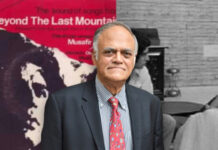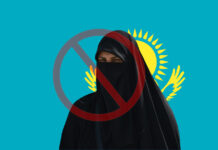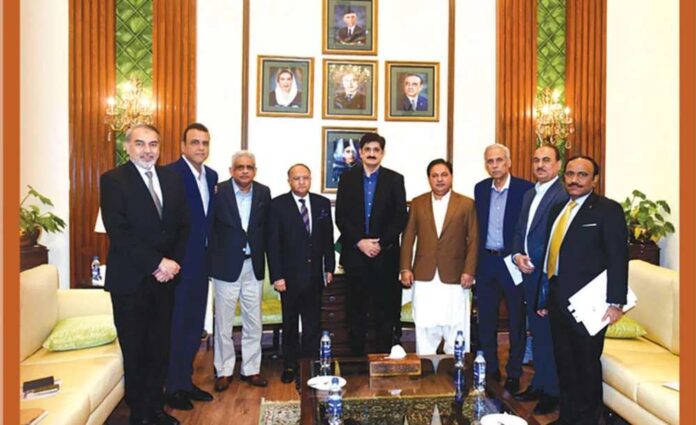The Management Association of Pakistan (MAP), founded in 1964, has fostered professionalism and promoted best management practices. As a non-profit and non-political organisation, MAP’s mission is to cultivate leadership and managerial excellence, focusing on human capital development and corporate competitiveness. Over the years, MAP has grown into a pivotal platform for sharing modern managerial knowledge and techniques. With a core commitment to helping businesses thrive in an increasingly complex global environment. MAP offers a range of programs, one of which is, its renowned Corporate Excellence Awards. The awards have been recognising outstanding companies since 1982. These awards celebrate businesses that demonstrate innovation, solid governance, and exceptional performance. MAP’s annual management conventions bring together national and international thought leaders to discuss emerging trends, ensuring members stay ahead in a rapidly evolving business landscape.
We interviewed Syed Ali Hasan Naqvi, the Executive Director of MAP to get an insight into the Corporate Excellence Awards.
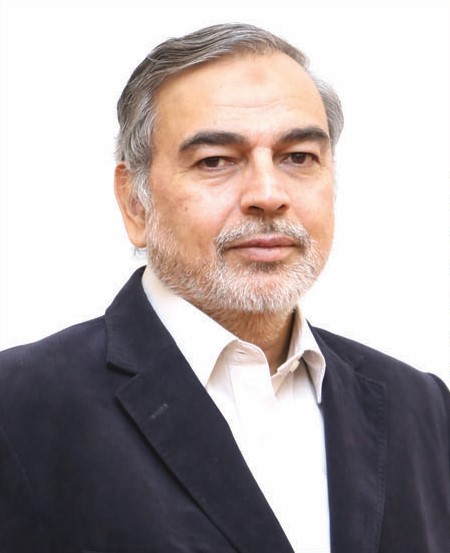
How did the Corporate Excellence Awards in 1982 change the corporate landscape?
Ali Hasan Naqvi: The Corporate Excellence Award, was formed in 1982, but it all began with the Management Association of Pakistan which was initiated in the mid-60s. By enterprising CEOs, CFOs and CXOs who were manning the Pakistani management landscape. The purpose of this was to accelerate the process of Pakistan’s management achieving international standards. It was and still is the bridge between the best international practices and introducing them to the Pakistani management landscape. Since the 60s there have been quite a few changes due to the nationalisation in the 70s. But, by 1982, it was decided by MAP to introduce a Corporate Excellence Award. Which would focus on the financial results and the management practices of companies. This would entail, an exercise on the part of the participating companies to reflect upon their workings, methods, and any gaps, additionally aiding to improve accordingly. I think we have been able to more or less been able to stick to the original fundamentals and principles.
What are the criteria that you judge companies on and what is the process of choosing companies?
AHN: We judge companies based on three main parts, and combine the scores to make our final decision. Financials account for 20%, while management practices, covering a broad spectrum like corporate governance, strategic planning, leadership, and communication, make up 80%. The questionnaire digs deep into areas; like social responsibility, customer focus (a proxy for marketing), HR, operations, IT governance, risk management, and more. To qualify, companies must have distributed at least 30% of their cumulative dividends to shareholders over the last three years. This filters down the pool of roughly 400 companies listed on the Pakistani Stock Exchange (PSX). For each sector, MAP selects the top five companies based on PSX financial rankings. These companies are then sent a detailed questionnaire and asked to respond promptly. Once the questionnaire is submitted, we arrange an interview with the company’s top management. Our team, including a chartered accountant firm FAMCO, evaluates different aspects of the questionnaire—quantitative, strategic, and governance-related. The interviews, now conducted online, aim to validate their claims, such as checking if their risk management framework aligns with their risk map. Afterwards, a third team, separate from the interviewers, reviews all the details—financial statements, questionnaires, and interview recordings. They use a rubric to assign scores for each section. The cumulative results lead us to select the top-performing companies in each sector.
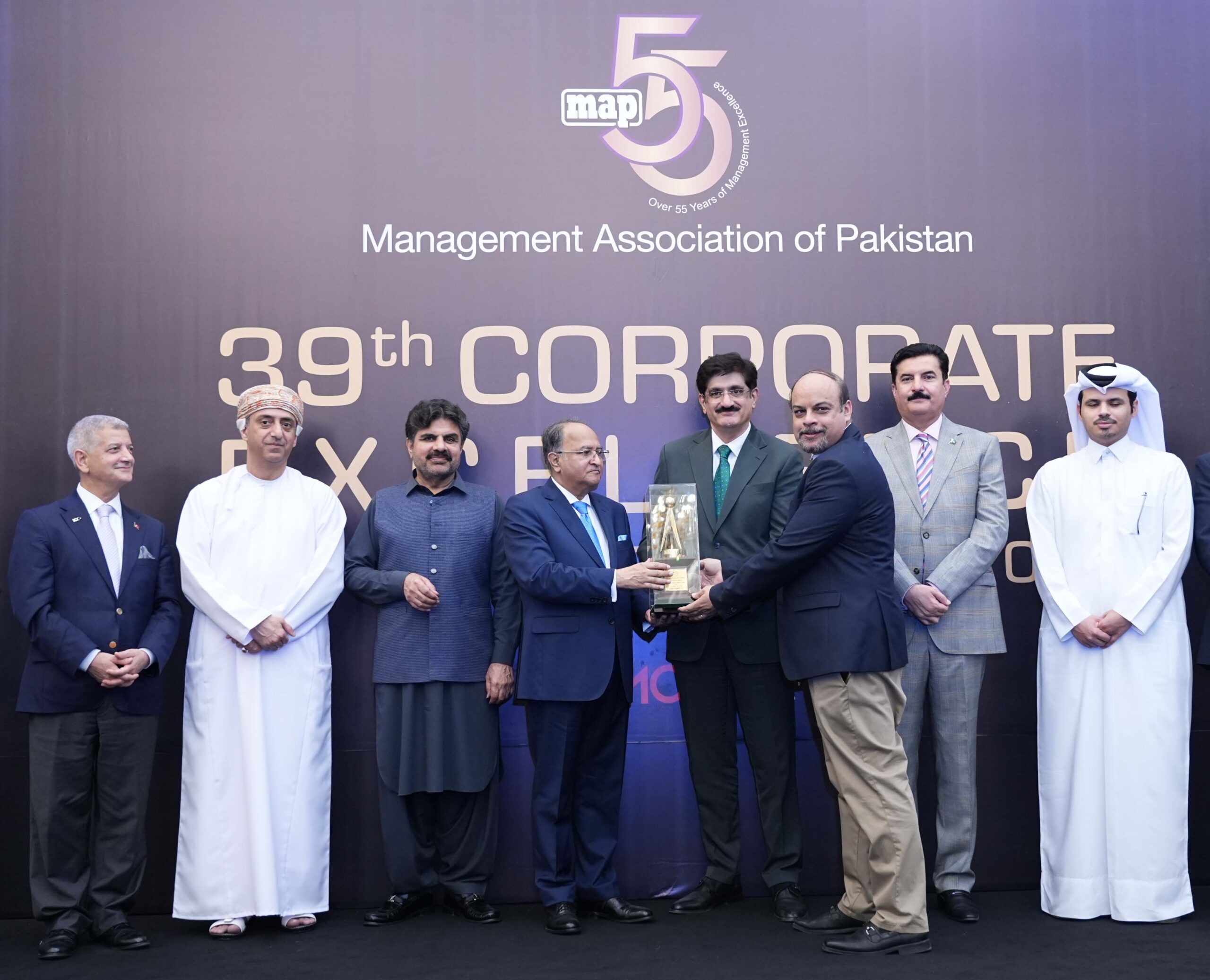
You have included most industries but have left out the most important industries of Pakistan; health, agriculture and the service industry. Why is that?
AHN: When the Corporate Excellence Awards were first established, the focus was solely on listed companies, as their financial records are readily available. For non-listed or private companies, accessing reliable financial data can be challenging, leading to arbitrary evaluations and undermining the awards’ integrity. This is why sectors like health, agriculture, and services have not been included. Currently, the awards concentrate on two main sectors: manufacturing, which includes textiles, automobile assembly, and pharmaceuticals. The financial sector, covers banks and other financial institutions. There is also a not-for-profit vertical where we assess management practices rather than financial performance, as these organisations are not aimed at generating profit. While traditional sectors are evaluated based on profitability—evidenced by their position among the top companies on the Pakistan Stock Exchange (PSX)—we are now considering the inclusion of startups. This initiative aims to promote good corporate practices within emerging companies, helping them to adopt innovative managerial concepts that can address existing gaps in their operations. Ultimately, the goal is to ensure that, all sectors have access to the best practices, fostering growth in the corporate landscape.

How has MAP evolved in the last 60 years?
AHN: MAP has seen its fair share of ups and downs. At times the association has been extremely active and unfortunately, there have been hiatuses and times when MAP did not perform as well as its founding fathers may have hoped it would. But if you look at the overall picture, with 2000 training sessions in the last 16 years. The reason why we still exist and why we have a strong membership base is because of the institution’s members. These institutions believe that MAP membership has been beneficial and it is their confidence that keeps us going.
There’s a lot of emphasis on financial numbers and ratios. What about the office environment and employee feedback?
AHN: The purpose of the interviews is to validate the answers, we ask for supporting documents and evidence, for example, we ask if the companies have a whistle-blowing policy. What is the mechanism if it is received? Is the CEO part of the whistleblowing process? What is the turnover ratio? How do companies promote their employees, is there a policy of internal promotions or lateral entry? When we are interviewing the company, the way they conduct themselves, the way they address each other, the manner they answer the questions, tells us about the corporate culture they have in-house. During the interviews, two hours is a short time but we get a fair idea. We ask them incredibly arduous questions, for instance, what if somebody has a complaint against the CEO? Does it go to the board? If there have been incidents like these before? If they say none, it may be seen as a very positive culture, but if there haven’t been any complaints, it may seem like they are stifling. We take into account every big or small detail.
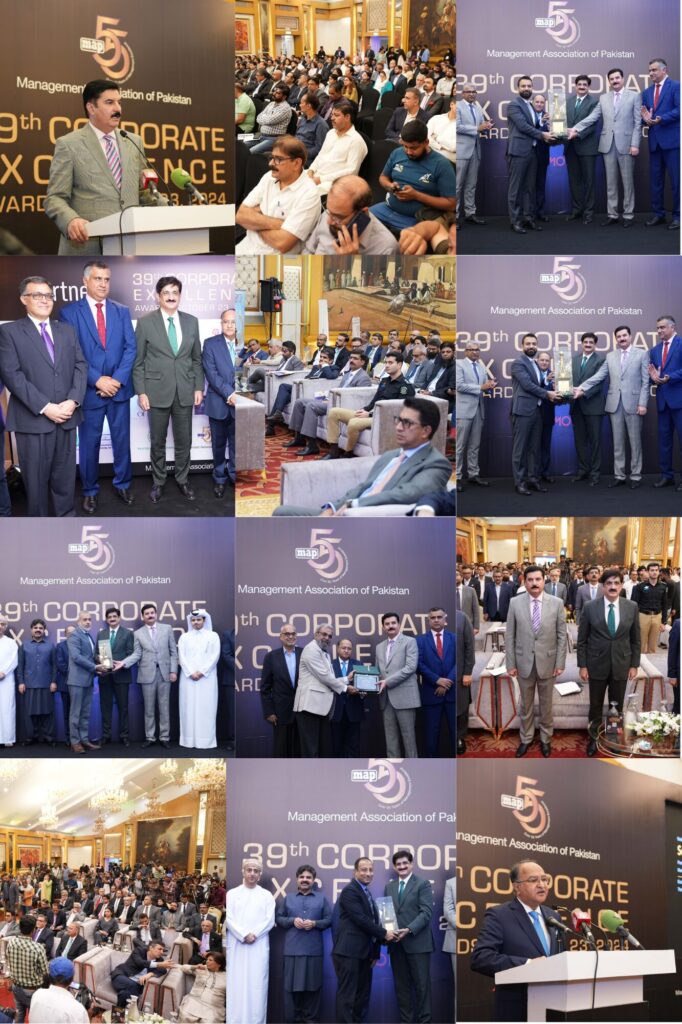
What is the process behind selecting the winners of Corporate Excellence Awards, and how has the evaluation criteria evolved over the years?
AHN: The top five companies for the Corporate Excellence Awards are selected based on their financial performance. These companies are grouped by subsector, and the selected firms receive a questionnaire to complete and return to us. Evaluation of the top performers is weighted heavily towards managerial practices, with 80% of the scoring derived from the questionnaire responses and interviews, while the remaining 20% is based on financial metrics. The evolution of the Corporate Excellence Awards mirrors the transformation of the corporate culture in Pakistan. In the 1980s, companies operated in a very different environment, largely insulated and dominated by state-owned enterprises with the government as the main regulatory authority. Back then, there was minimal interaction with the global market. However, today the competition has intensified, and skill levels have risen significantly. The presence of multinational companies in Pakistan and the ability of many local firms to engage at global and regional levels have heightened the need for effective managerial practices. While some questions in the questionnaire remain unchanged from the early 80s, the responses have matured, reflecting a more advanced understanding of management in today’s dynamic environment.
How does MAP ensure the integrity and transparency of its jury? Are there independent audits or checks?
AHN: Our team, including a chartered accountant firm FAMCO, evaluates different aspects of the questionnaire—quantitative, strategic, and governance-related. What we expect from both parties, whether it be FAMCO or the companies is disclosure. In the case, where a company is a client and is related to someone from FAMCO, it is a possibility. As long as there is disclosure, it will be fair that they have shown their cards. They’ve shown us their client list, these are the companies we have on our plan, we know they’re not giving them any favours because incidentally, not many of the clients of FAMCO have been winners in the past. Although they are a part of this, there are two different teams. One is interviewing them and the other is evaluating. So, as far as the jury’s concerned it’s fair, and even as MAP, we don’t interfere with their work. We trust their judgment.
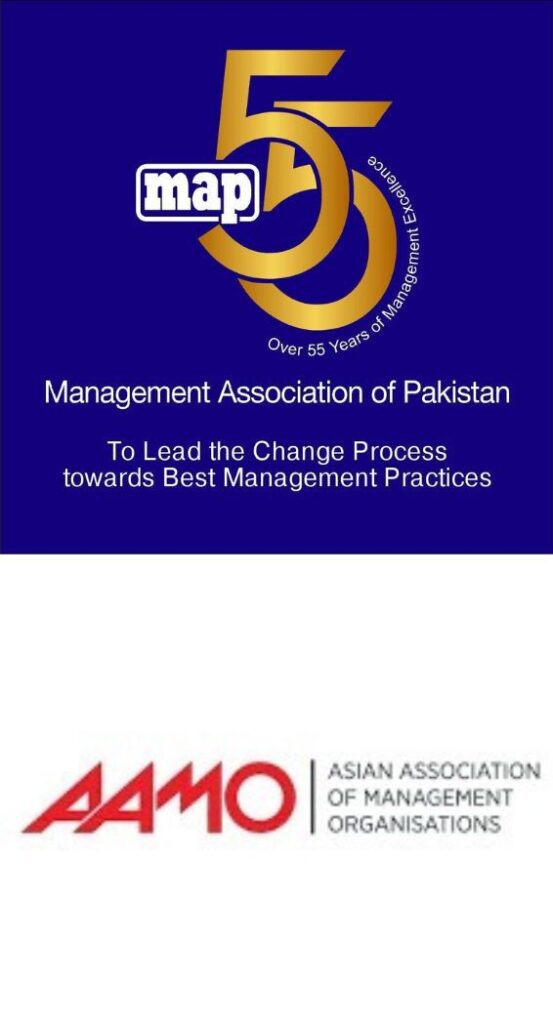
How has MAP’s strategic partnership with the Asian Association of Management Organisations enhanced its capacity to provide global exposure to local companies?
AHN: The Asian Association of Management Organisations (AAMO) comprises various National Management Organisations (NMOs) from different countries. MAP representing Pakistan, and other NMOs include the All-India Management Association (AIMA) for India. The Hong Kong Management Association (HKMA), and the Management Association of the Philippines. AAMO hosts two half-yearly meetings where NMOs participate in discussions about regional developments and share insights on how different organisations are benefitting from their initiatives. MAP has actively participated in these meetings for several years, gaining valuable exposure, insights through various simulations and challenges. Notably, last year, MAP reached the finals in a competition, finishing as runners-up to India. Competing alongside representatives from Hong Kong, Macao, the Philippines, New Zealand, and Australia—an impressive achievement. Additionally, each NMO distributes newsletters featuring important management articles and updates. Macao’s NMO runs a Young Managers Programme, inviting two managers under the-age-of 35 from each member country. This training programme includes simulation exercises and visits to local organisations, providing participants with a deeper understanding of international operations and management practices.
How do you balance rewarding innovation with ensuring traditional management practices? Is there ever tension between old-school management and modern corporate trends?
AHN: Management trends are a reflection of the changing global economic landscape. There has been a shift. Many companies are now operating many markets, or sourcing their supply chain from various markets. It has created a sense of acceptance for culture and norms different from ours, and inclusion of diversity. These are hallmarks of the present practices, which were lacking in the past, not just in Pakistan but around the world. With the advent of Gen-Z, work culture is changing. People are no longer associating their job with a life long term in one particular organisation. We have to keep pace with the changing times. There are two types of organisations, the mechanistic structure, the other is organic. Organic organisations tend to be flat. There are fewer hierarchical levels in those organisations and there is two-way communication. In typical mechanistic organisations, there is a higher level of bureaucracy. Roles are clearly defined, responsibilities are clearly assigned, and communication is from the top to bottom. Unlike organic structures where you have the feedback and communication going both ways. The question is which one will suit you more.
How do you address the inevitable whispers about bias or favouritism in the selection process?
AHN: There has never been a winner that has defied logic, never a surprise winner. An outlier can be spotted. For the past two years, the leading Islamic Bank has been coming to the top of the financial sector. It is a no-brainer how and why. Even in other sectors, the trophy winners are fairly decided and there are entire workings behind it and so far, we have never received a single complaint. Companies reiterate back to ask what they were lacking and what they should be covering for the next year. But nobody had ever questioned as to why this company has become a winner and we have not. I like to believe that this is one measure of the confidence that companies have in MAP. These awards are not there to showcase a trophy but for the sake of participation, they give companies an insight of the organisation’s strengths and weaknesses, it presents them with opportunities and threats. I say to companies having participated in the Corporate Excellence Award is a reward in itself. The trophy is only symbolic.
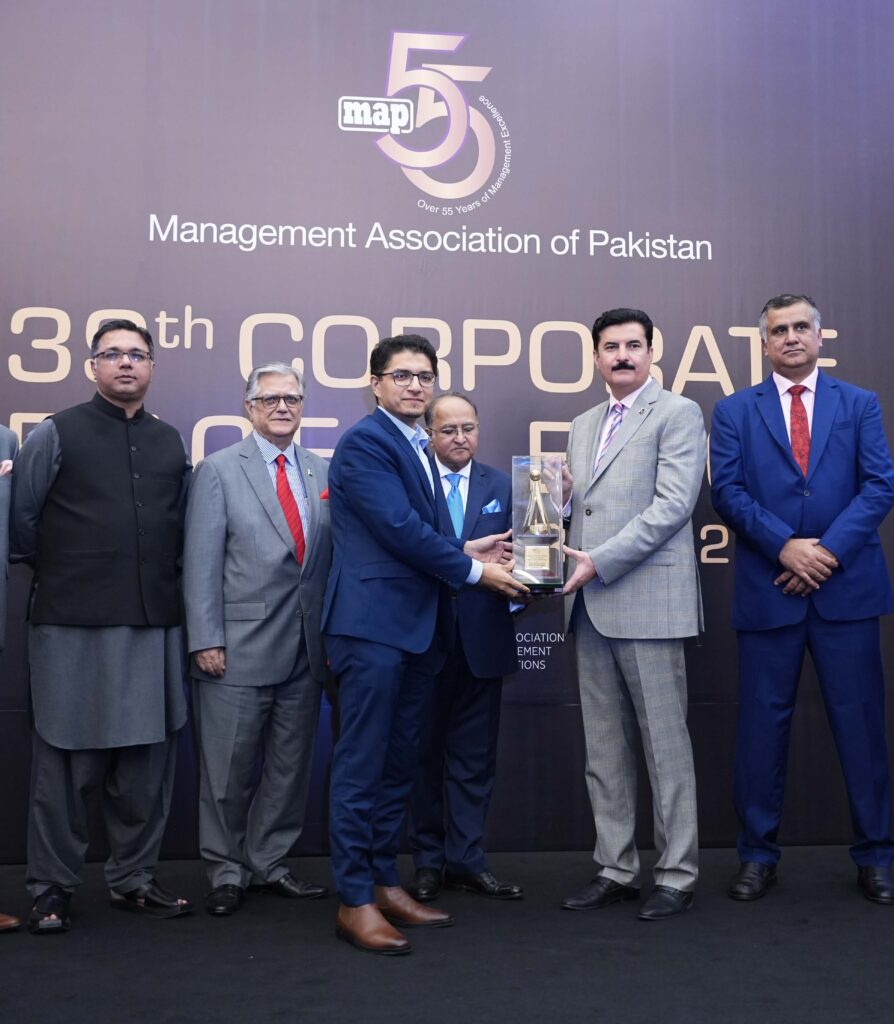
What initiatives is MAP planning to implement to ensure Pakistani corporations remain competitive in an increasingly digitised and globally integrated business environment?
AHN: MAP operates as a Section 42 company, meaning it is governed by the SECP rules. This legal status requires the organisation to have a governing body, referred to as the Executive Committee, which functions similarly to a board of governors in other companies. While MAP doesn’t have shareholders, its members vote in an Annual General Meeting (AGM) to elect this Executive Committee every three years. Sometimes, elections aren’t necessary if the number of nominations equals to available positions. Currently, the Executive Committee is led by Mr. Samad Ali, who has a clear vision for MAP’s direction over the next three years. One of the key initiatives involves exploring collaborations with prestigious educational institutions worldwide. While this is still in the planning phase, it was decided to approach leading universities—both international and local—to develop special programs tailored for Pakistan. For example, a Pakistani delegation previously collaborated with the renowned INSEAD business school in Singapore, known for its management expertise. In addition, MAP aims to highlight Pakistani success stories globally by integrating them into case studies used in university curriculums. Currently, many institutions focus on Western and Indian case studies. Pakistani organisations, who have successfully managed in extremely volatile economic conditions, deserve recognition. MAP plans to advocate for these case studies, showcasing how companies have navigated in challenges like the dollar shortage, import restrictions, and profit repatriation issues—demonstrating remarkable managerial skill in such turbulent times. Furthermore, while the organisation acknowledges the growing role of AI and digitisation. It sees these tools as means to an end, not replacements for human decision-making, particularly at strategic levels. While AI can handle routine tasks, MAP believes that human oversight will remain essential for the foreseeable future.
What are MAP’s long-term goals to foster, more transparent and sustainable management practices in the corporate sector?
AHN: For listed companies, financial transparency is clear-cut because they are legally required to share their financial results in annual reports. This allows for easy assessment of their financial performance, making it reliable and transparent. However, private companies aren’t held to the same standard. Since they don’t have to disclose their financials, it’s tough to gauge their exact position. Which is why MAP can’t include them in its corporate competitions—it would be guesswork rather than a fair evaluation. TV channels, for example. HUM TV is the only listed channel, so its financial data is available, while other private channels don’t share theirs, leaving everyone guessing. The same goes for newspapers, which also don’t publish their financial results, keeping their earnings a mystery. On the governance front, things are improving, thanks to legislation like the 2017 and 2019 Acts, which aim to enhance transparency and fairness in corporate governance across sectors. MAP plays a role here too, working alongside organizations like SECP and the Pakistan Institute of Corporate Governance (PICG). Through our Corporate Excellence Awards, we evaluate companies on key governance aspects—like having independent directors, female board members, and essential committees such as audit and HR. By asking these questions, we help push for better governance practices. Over the years, corporate governance in Pakistan has become much more transparent. Gone are the days when board members were simply the family members of the owners. While there’s still progress to be made, we now see more professional management teams leading the way.
Let’s imagine a world ten years from now, what would a winning company in 2034 look like, and what criteria would you expect them to be?
AHN: Whether it be 2034 or 2024, the essence of organisations will still be defined by the people. While the external aspects—like infrastructure, technology, and tools—may evolve, the core of an organisation will remain its human element. Managing people will continue to be the most challenging and crucial part of leadership and the corporate sector, regardless of the advancements in other areas. Organisations can broadly be divided into three areas: technical, conceptual, and strategic. At the operational level, work is mainly technical, while middle management requires conceptual skills. However, when you move to senior leadership, like CEOs, CFOs, or CXOs, the focus shifts to managing people. This level demands not only technical and conceptual expertise but also strong interpersonal and human management skills. These skills—understanding and managing people—will still be essential in 2034, just as they are today in 2024. Human traits and behaviour evolve slowly, and leaders will continue to face similar challenges in dealing with their teams. While new global and organisational challenges will emerge, the fundamental task of addressing human needs and behaviour will remain constant for strategic managers. In essence, despite changes in technology and the global landscape, organisations in 2034 will still need to focus on the same crucial element: people.
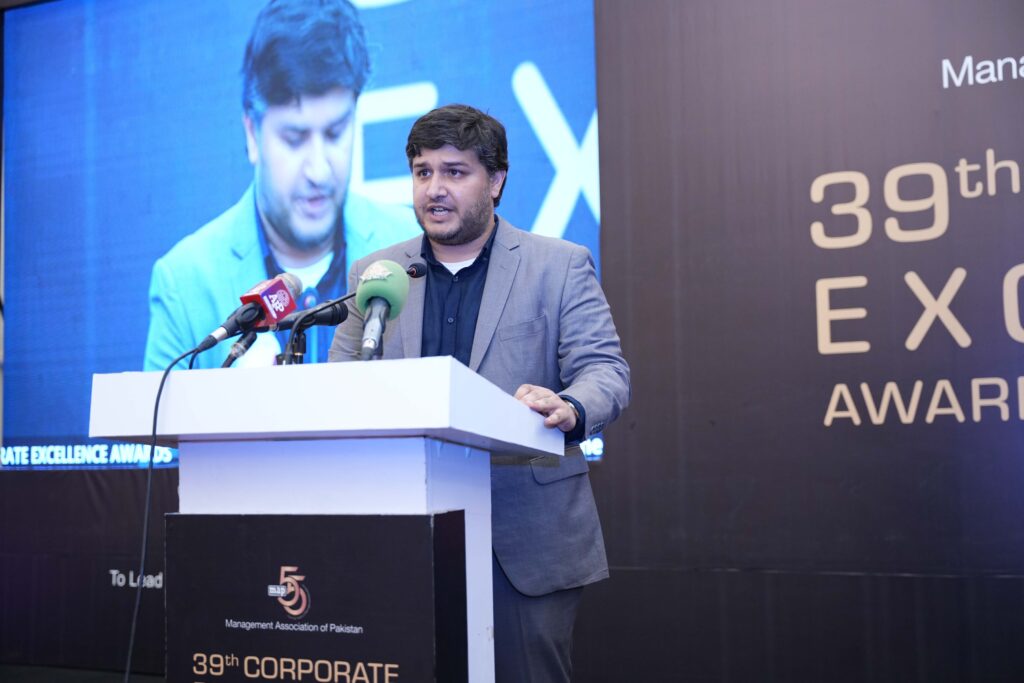
Do you have a message for the corporate sector of Pakistan and the top of MAP?
AHN: On behalf of MAP, I would like to extend my congratulations to the corporate sector of Pakistan for its continued interest in the Corporate Excellence Awards over the years. This 39th edition is a testament to the commitment of businesses to improving corporate practices and culture. While MAP plays a modest role in this process—by benchmarking organisations against the best standards—it is the corporate sector itself that deserves the applause for driving progress. Their successes should be celebrated, and credit must be given where it is due. However, it’s also important to acknowledge that not everything is perfect. There are still gaps, areas for improvement, and challenges that Pakistani companies must address to compete with international standards. As the world becomes more interconnected, these challenges will only grow. I believe Pakistani organisations are on the right track. The direction is promising, and I hope they continue to meet their targets, pushing themselves to transform and reach even greater heights.
MAP’s involvement in initiatives like the Corporate Excellence Awards and its active participation in AAMO demonstrates its dedication to enhancing management practices and fostering collaboration across industries. Benchmarking corporate standards, engaging in global discussions, and promoting innovation through programmes like the Young Managers Programme, MAP continues to elevate Pakistan’s corporate landscape and strengthen its international presence.
Stay tuned to Brandsynario for the latest news and updates












